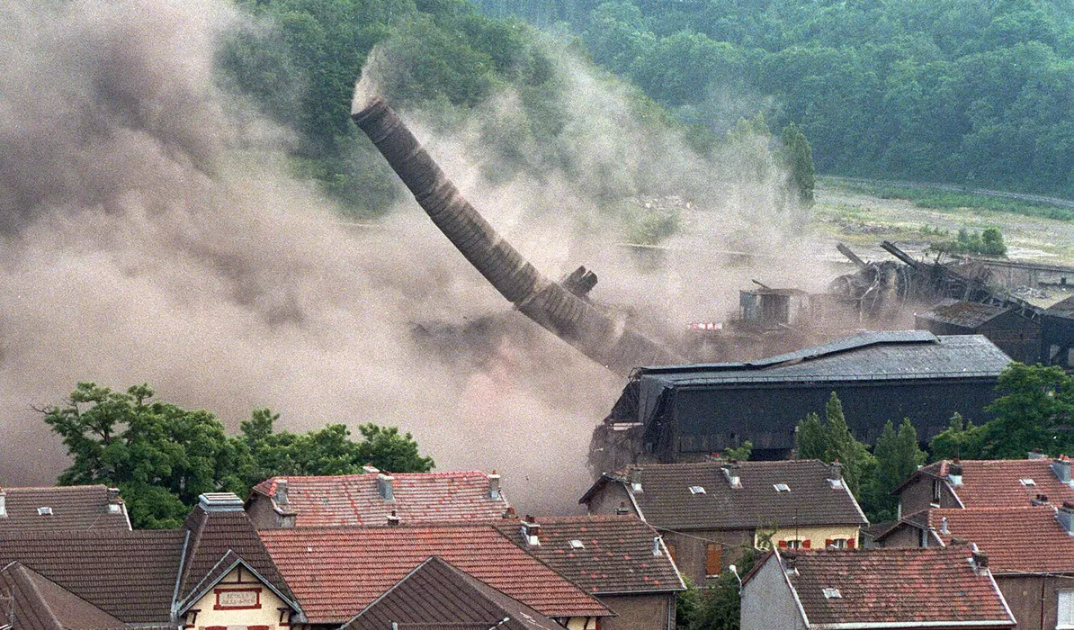Axelle Arquié is an economist at CEPII, the Center for Prospective Studies and International Information. Thomas Grjebine is an economist at CEPII and head of the Macroeconomics and International Finance scientific program. They publish a report entitled "Twenty years of social plans in industry: what lessons for the ecological transition?".
THE
FIGARO.
- Between 1970 and 2021, in France, the share of the manufacturing sector in GDP fell from 23% to 10%, and that of employment from 29% to 11%.
Is technical progress solely responsible for our deindustrialisation or is it the result of political choices?
Thomas GRJEBINE and Axelle ARQUIÉ. -
No, several factors have contributed to this deindustrialisation.
In addition to technical progress (notably automation), international competition has played a significant role.
In our work, we show that the employment areas most exposed to Chinese competition had a higher probability of experiencing a redundancy plan.
Read alsoHow Europe is mobilizing to save its industry
Another factor played in the French case: the more expansionist policies (conducted in particular in the 2000s) had the consequence of increasing our trade deficits and accelerating deindustrialization (Grekou and Grjebine, 2022).
While they are beneficial in the short term, such policies tend to reorient activity towards services to the detriment of the manufacturing sector, in particular because they lead to a deterioration in competitiveness and the substitution of imports for national production.
A veritable vicious circle between external deficits and deindustrialization has been set up in France: the more a country deindustrializes, the less its productive apparatus is able to respond to a revival in demand and the more it is aimed at imports,
The social plans do not only affect individuals, their effects are also perceptible at the level of the employment zone, you write. What were the social consequences of this process of deindustrialization?
In our study of the CEPII, we highlight both a cost for the employees concerned and for the territories.
First of all, a significant proportion of laid-off employees cannot find a job.
Nearly 40% of employees laid off as part of a social plan in industry are no longer employed one year after the dismissal, and more than half six years later.
And those who find a job suffer a significant drop in salary, especially if they have to change sector (from industry to services) and if they are poorly qualified.
With deindustrialization, there has been an increased disconnection between places of production and places of consumption.
Thomas Grjebine and Axelle Arquié
At the global level, the consequences are also negative.
One could have hoped for a "virtuous reallocation of the workforce" following a social plan, that is to say that the laid-off employees would then be hired in more value-creating companies, in a logic of creative destruction.
But this is not what we observe.
Those who find a job work in smaller companies, which invest less and create less value.
The consequences of the social plan are thus visible in the territories.
The employment areas that suffer from them then experience a higher unemployment rate, increased precariousness of jobs, and relatively less business creation.
We are therefore far from a phenomenon of creative destruction!
What about the environmental consequences?
With deindustrialization, there has been an increased disconnection between places of production and places of consumption with two environmental consequences.
On the one hand, we produce in places where environmental standards may be less restrictive.
On the other hand, there is the impact on the climate linked to the distances traveled when a purchased product may have traveled thousands of kilometers before arriving on our soil (not to mention that the raw materials used for production have -even could be transported over long distances to the factory).
The mistake made in the 2000s was to consider that it was enough to redistribute the gains of globalization.
Thomas Grjebine and Axelle Arquié
In short, a significant part of our pollution comes from the goods consumed that we import.
Nearly half of the emissions related to the consumption of a French person are thus emitted elsewhere than in France.
Some politicians hope to compensate the “losers” of the ecological transition as well as the “losers” of globalization. Is it a decoy?
Yes, totally.
The mistake made in the 2000s was to consider that it was enough to redistribute the gains of globalization.
Not only has this not been really effective, but we have witnessed a more pronounced deindustrialisation in France than elsewhere.
With the result of territories mired in unemployment, a progressive disintegration of our industrial fabric, and an increasingly significant human, political (rise of the RN) and economic cost (in particular with the increase in social benefits of all kinds intended for "compensate the losers").
Faced with climate change and the risks to employment of the ecological transition, it is not a question of renouncing this transition, but on the contrary of committing to it quickly by means of an ambitious industrial policy which makes it possible to locate the jobs in a carbon-free industry in France and in Europe, against our competitors in the forefront of which China and the United States.
Because succeeding in the ecological transition means doing everything to avoid an industrial stall by developing a competitive green industry.
And it is the increased competition in this area, notably with the American Inflation Reduction Act (IRA), which has pushed the Commission to change its software, to fully assume the idea of a European industrial policy.
This is the meaning of the industrial plan announced on March 16 under the leadership of Thierry Breton.
This is a step in the right direction, even if it is still too early to know the real extent of the resources that will be allocated.












